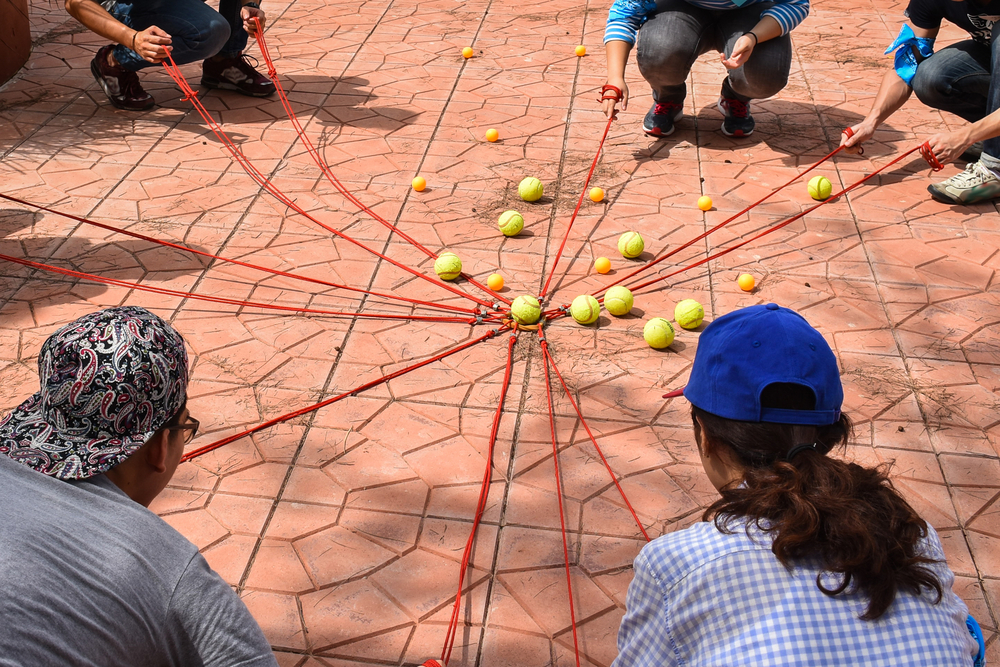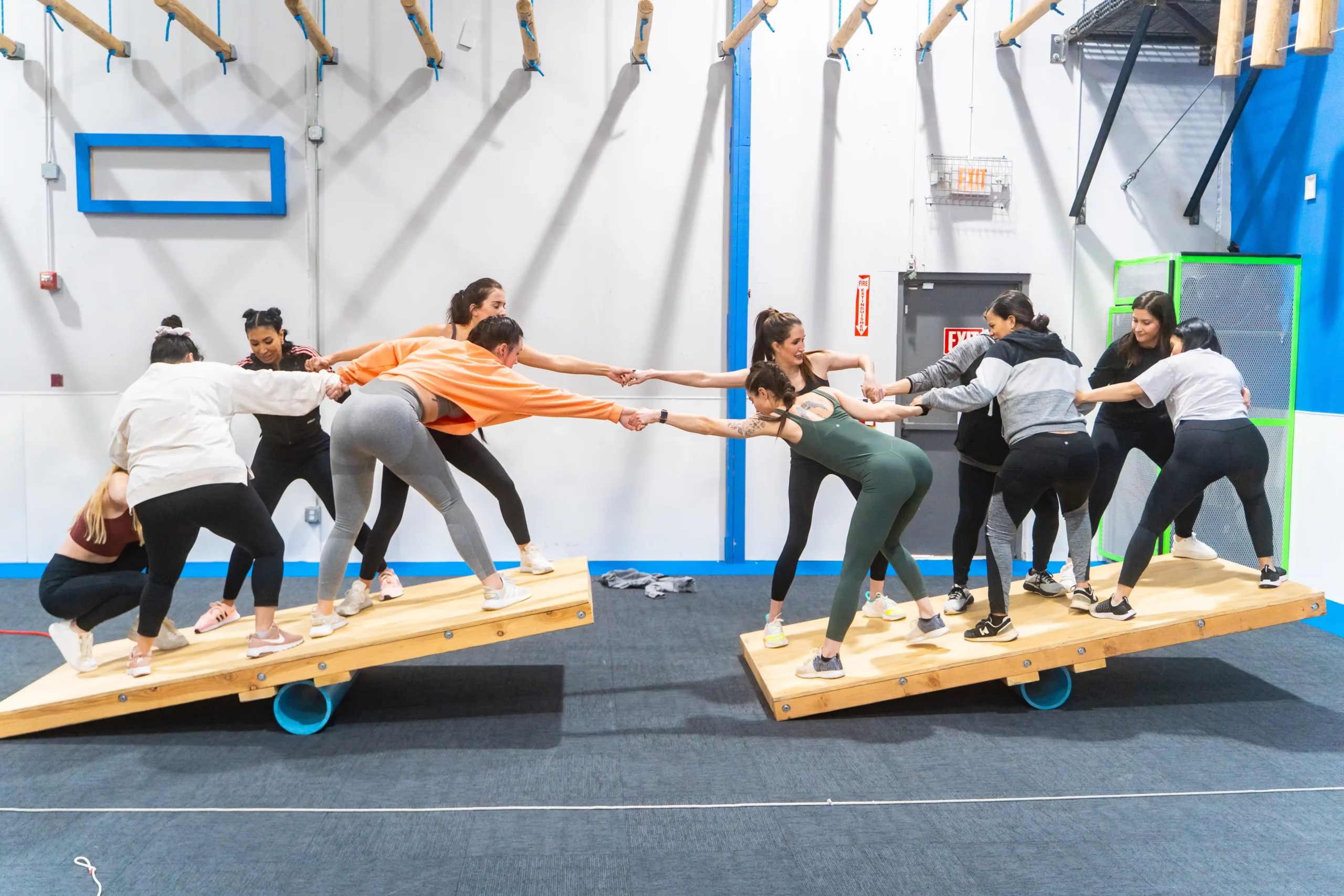Identifying Engaging Team Structure Activities That Promote Problem-Solving Skills and Innovative Thinking Among Associates
In today's quickly evolving workplace, promoting analytical skills and imaginative reasoning through team-building tasks has actually come to be vital for business success. Identifying the right exercises can considerably enhance collaboration and communication amongst associates, bring about an extra resilient and innovative workforce. While different approaches exist, the efficiency of these tasks frequently rests on their capacity to involve participants meaningfully. What particular features should these activities have to optimize their influence, and exactly how can companies gauge their success? Exploring these concerns can illuminate paths towards an extra vibrant team environment.
Recognizing Group Building Conveniences

In addition, team building serves to enhance interpersonal relationships among colleagues, which is vital for effective interaction. When employee establish trust fund and relationship, they are most likely to share information freely and seek help when required. This harmony not just boosts specific efficiency yet also enhances overall team effectiveness.
Additionally, group structure activities can dramatically enhance morale and motivation. Workers that take part in engaging experiences feel much more linked to their organization and are likely to demonstrate raised dedication and productivity. A motivated labor force is much better outfitted to deal with issues creatively and efficiently.
Ultimately, understanding the advantages of team building is important for organizations intending to boost analytical skills. By investing in these tasks, companies can produce a more natural, cutting-edge, and resilient labor force that is prepared to satisfy the demands of a vibrant service environment.
Characteristics of Reliable Tasks
Successful group building activities share a number of essential characteristics that boost their efficiency in establishing analytical skills. To start with, they must promote cooperation among employee, encouraging open interaction and collective thinking. This joint setting enables individuals to utilize diverse viewpoints, which is necessary for innovative analytic.
Secondly, reliable activities are created to be difficult yet obtainable, pressing participants to believe seriously and creatively. These jobs must call for teams to browse challenges, evaluate information, and create calculated remedies within a specified timeframe.
One more vital quality is the aspect of representation (Orlando team building activities). Tasks that include debriefing sessions make it possible for participants to assess their methods, discover from failings and successes, and apply these understandings to future obstacles
Additionally, successful activities frequently integrate real-world scenarios relevant to the team's job context. This not only enhances engagement but likewise makes sure that skills established during the activity are transferable to daily jobs.
Imaginative Problem-Solving Workouts
Innovative analytical exercises play a crucial role in enhancing a team's capacity to take on complicated obstacles. These tasks cultivate an atmosphere where employee can think outside package, motivating cutting-edge options with cooperation and diverse viewpoints.
One effective workout is the "Reverse Brainstorming" technique, where individuals identify potential problems or obstacles associated with a task. By concentrating on what could go wrong, groups can design approaches to alleviate these concerns and stimulate innovative reasoning. An additional beneficial workout is the "Mind Mapping" strategy, which enables employee to visually organize their ideas and ideas around a main style, assisting in connections and understandings that might not arise through conventional thinking.

Furthermore, the "6 Believing Hats" approach motivates people to technique problems from different point of views, such as emotional, logical, and innovative viewpoints. This organized approach assists groups discover a variety of angles, causing thorough services.
Integrating these imaginative analytic exercises into team-building activities not just boosts cognitive flexibility but likewise enhances social connections, inevitably adding to a more ingenious and cohesive team dynamic. Such exercises are crucial for cultivating a society of creativity and flexibility in the workplace.
Collaborative Challenges for Teams
Various collective challenges can significantly improve a group's problem-solving capabilities while promoting unity and communication. These tasks require participants to participate in cumulative reasoning, promoting a setting where varied viewpoints can be shared and valued.

In addition, group scavenger hunts can be designed to integrate certain analytical tasks that call for critical reasoning and collaboration. By participating in such obstacles, group members learn to navigate problems, establish trust, and value each other's strengths. Orlando team building activities. Eventually, joint challenges contribute in growing a cohesive group dynamic that prospers on advancement and shared success
Determining Success and End Results
To properly assess the success of team-building activities intended at improving problem-solving abilities, it is vital to establish clear metrics and desired outcomes. This procedure starts with defining certain goals, such as enhanced cooperation, my sources raised creative thinking, and improved critical reasoning among staff member. By verbalizing these goals, companies can tailor tasks that align with their vision.
Quantitative actions, such as pre- and post-activity studies, can offer important insights into participants' perceptions of their analytical capacities. Additionally, tracking performance metrics-- such as task conclusion prices or the effectiveness of remedies devised throughout team-building workouts-- can show the influence of these tasks on total productivity.
Qualitative evaluations, consisting of individual feedback and empirical research studies, can additionally improve the evaluation process. Promoting open conversations post-activity allows teams to assess their experiences, promoting a setting of continual improvement.
Ultimately, measuring success is not simply regarding examining prompt end results but also keeping track of long-lasting behavior modifications within groups. By constantly reviewing the effectiveness of team-building efforts, organizations can improve their approach, making sure continuous advancement of analytic skills and creativity abilities amongst colleagues.
Verdict
Finally, choosing interesting team-building activities that promote problem-solving skills and creative reasoning is essential for boosting cooperation among coworkers. Reliable exercises, such as Reverse Brainstorming and Getaway Room difficulties, not just stimulate important reasoning yet likewise promote a society of creativity. By incorporating real-world situations and reflective debriefing sessions, groups can enhance you could try here interpersonal connections and cultivate a durable labor force, inevitably contributing to cumulative success and boosted business spirits.
Reliable group structure cultivates collaboration and enhances problem-solving capabilities within a company.Additionally, group structure tasks can substantially improve morale and motivation.Effective group structure tasks share numerous crucial characteristics that enhance their effectiveness in developing analytic abilities. By focusing on what can go wrong, teams can devise strategies reference to mitigate these issues and boost innovative reasoning.In addition, group scavenger pursues can be developed to integrate certain analytic tasks that need tactical reasoning and partnership.